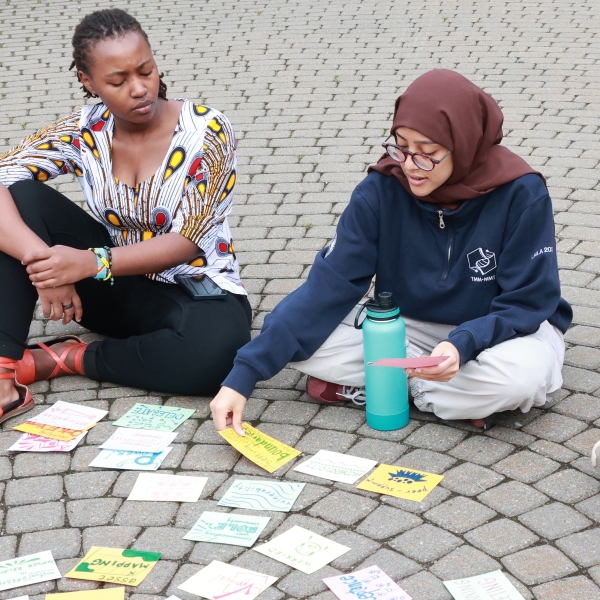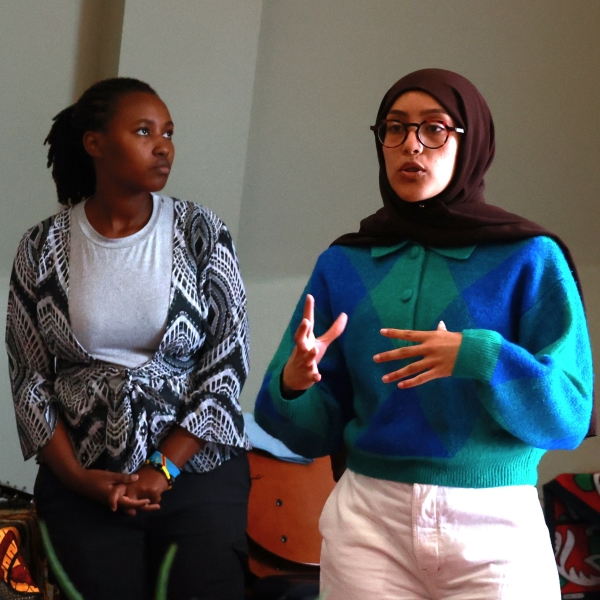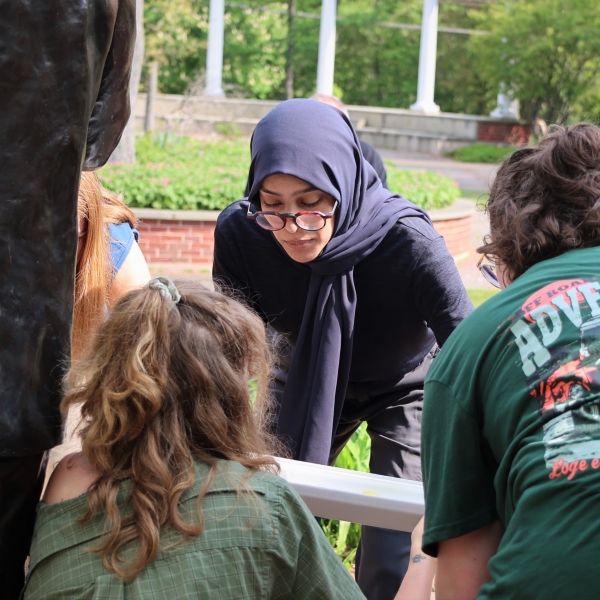Laila Alfadhli is a graduate of University of Ottawa where she studied Translational Molecular Medicine. Throughout her undergraduate studies, Laila conducted lab-based research in areas such as oncology and SARS‑CoV‑2. When she learned about the Pathy Foundation Fellowship, she realized she wanted to use her research skills in a new way.
“I wanted to translate my research’s impact directly to a community that I identify with,” she explains.
The ultimate success would be if the rehabilitation program sparks a ripple effect of support within the Muslim community, creating a network of support that is community-led and driven.
Anti-human trafficking of Muslim Women taskforce
For her Fellowship initiative, Laila is working alongside Sakeenah Homes – an organization that provides culturally-sensitive supports for Muslim women and children in areas such as transitional housing, food insecurity, medical and mental health, and education and employment; they are also the first licensed Muslim foster care agency in North America.
“I spoke with Sakeenah Homes about the issues they’re currently facing as a community,” Laila explains. “One of the challenges is the development of a rehabilitation program for Muslim women survivors of human trafficking, and because this has never been done in North America, a lot of our decisions need to come from a research perspective.”
Laila explains that addressing an issue like human trafficking in Muslim communities has unique considerations.
“Human trafficking is a complex issue in itself, and within the Muslim community, societal taboos add an extra layer of complexity to the conversation,” she explains. “A lot of times [trafficking] goes unnoticed within the community because of cultural norms. In combination with trauma bonds that form with their trafficker, seeking help becomes incredibly difficult for Muslim women survivors.”
Laila is helping Sakeenah Homes develop their new program. Using a community-led and trauma-informed approach, Laila will work alongside survivors and practitioners to determine the unique needs within the community. She will also research existing supports to help determine what needs are, or are not, being met, identifying gaps and possible solutions.
“The Muslim community is tired of constantly having to explain their culture and religion to others. It can be frustrating when you finally reach out for support and find that the available resources aren’t actually addressing your specific needs,” Laila explains. “It’s almost like the services are useless to them.”
Laila hopes to build on those existing resources and adapt them to better serve Muslim communities.
“We can leverage what the province of Ontario already has for survivors of human trafficking and then twist it so it’s more culturally and religiously cognizant,” Laila explains.
“A lot of policies involved within human trafficking focus on the perpetrator, or the trafficker. Very little is focused on how the survivors can empower themselves. That dismissal really discourages a lot of survivors from reaching out to law enforcement and reclaim their autonomy through the legal system.”
Laila hopes that in addition to developing supports that can be used by Sakeenah Homes, that the research may contribute to advocating for legislative changes.
The Muslim community is tired of constantly having to explain their culture and religion to others. It can be frustrating when you finally reach out for support and find that the available resources aren’t actually addressing your specific needs – it’s almost like the services are useless to them.
As she moves into the community phase of her Fellowship experience, she believes her biggest challenge will be ensuring her process and her findings will be accepted by the community they are meant to serve.
“A valuable lesson I’ve learned from launching this initiative is the power of words,” she explains.
“I think with something so sensitive, even the way I write my research report and the words that I use will influence its impact – including how the community will perceive the report and how the community will accept the advocacy work that comes with it.”
How will Laila know if her Fellowship has been a success?
“The ultimate success would be if the rehabilitation program sparks a ripple effect of support within the Muslim community, creating a network of support that is community-led and driven.”



Building networks of support
The Pathy Foundation Fellowship is unique in its approach. Fellows are afforded both autonomy in their experience and work, and holistic supports from staff, peers, mentors, and more.
“I’ve gotten so much support from my cohort and triad. We’ve created a small community within ourselves in such a short period of time,” Laila explains.
“This is my first experience publicly expressing my values and beliefs while also working towards actionable changes. While it has been tough, I have started to gain more confidence in my advocacy efforts.”
The Fellowship includes up to $40,000 to help fund Fellows’ initiatives and support their living and travel expenses so that they can focus fully on their commitments.
“I’m excited to finally be given the resources and the platform to advocate for something that’s so important to my community.”
Are you a graduating student from UOttawa, McGill, Carleton, StFX, Bishop’s, or Queen’s University? You may be eligible to apply.
To learn more about the Pathy Foundation Fellowship, visit pathyfellowship.com
